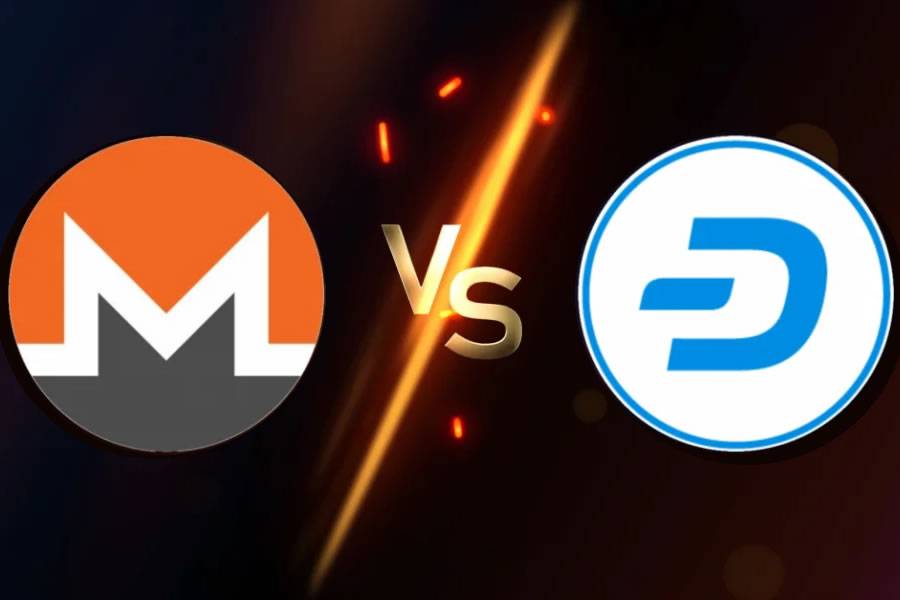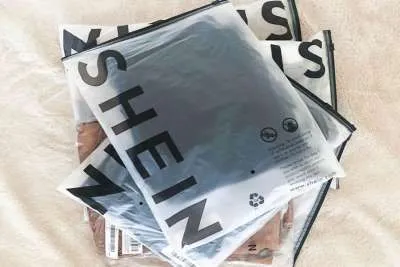Monero (XMR) vs Dash: Best Private Coin in 2025
- 30-05-2025
- Business
- Canarian Weekly
While the debate over financial anonymity rages on, two names are always at the front and centre in the world of cryptocurrency: Monero (XMR) and Dash. Both coins were created to challenge the transparency of such classic blockchains as Bitcoin, offering users a more secret and incognito way of doing transactions.
But among these privacy-focused coins, which one truly is the best? In this article, we compare Monero and Dash based on privacy, technology, uses, adoption, and sustainability in the long term.
Whether you're looking into clandestine payments or are just learning about the privacy coin market, this comparison will let you know which coin better serves your purposes, and why others find an XMR exchange preferable to other options.
1. The Privacy Philosophy: Default vs Optional
The most fundamental difference between Monero and Dash is the way they handle privacy.
Monero (XMR) swap offers mandatory, all-the-time privacy. All transactions are private by default, to the point that sender, recipient, and amount are anonymised using ring signatures, stealth addresses, and RingCT (Confidential Transactions).
Dash, on the other hand, provides privacy as a choice rather than a mandate through its PrivateSend option. It is essentially a coin-mixing mechanism that blends tokens through a series of transactions to hide origins.
Winner: Monero
The default privacy is regarded as being insecure because it doesn't provide room for errors, however. All transactions look the same on the blockchain, which makes it extremely hard to trace - a basic reason why many users would rather have an XMR exchange to enhance anonymity.
2. Technology and Privacy Strength
Monero's Technologies:
- Ring Signatures: Merges real transactions with decoys.
- Stealth Addresses: Generates a one-time-use address for payees.
- RingCT: Hides transaction amounts.
- Dandelion++: Conceals IP addresses employed for broadcasting transactions.
Dash's PrivateSend:
- Works through masternode coin mixing.
- Limited to defined amounts (usually 1,000 DASH or less).
Does not conceal amounts or addresses as much as it just mixes them.
While Dash's PrivateSend can improve privacy, it's very easy for blockchain analysis tools to identify when it's being used and potentially track the original source through timing analysis or masternode inspection.
Winner: Monero
Monero's privacy is strong, always enabled, and hardened into the protocol - Dash's privacy is more of a feature flag.
3. Regulatory Pressure and Exchange Support
Both currencies have faced regulatory pressure, though Monero has borne the brunt. Major centralised exchanges have delisted XMR because it does not comply with KYC/AML surveillance requirements. Dash, previously nicknamed a privacy coin, has in recent years attempted to distance itself from such a tag.
While Dash's optional privacy makes it more palatable to regulators, it also diminishes its utility as an actual privacy coin. In the meantime, Monero is still the go-to for individuals who seek utmost financial anonymity, even if that means resorting to peer-to-peer methods or decentralised platforms to facilitate an XMR swap.
Winner: Both
Monero is better for privacy fanatics; Dash is easier to buy on traditional exchanges, but at the cost of less privacy.
4. Community and Development
Monero is open-source and community-driven, with no marketing team or central organisation. The development is funded by community donations through the Monero Community Crowdfunding System (CCS), which has kept regular protocol updates going for years.
Dash also has a strong community, but its governance is through a Decentralised Autonomous Organisation (DAO). It funds proposals using a percentage of block rewards so that the community can vote on development proposals.
Winner: Both
Both communities are active, but Monero is more decentralised and Dash has more structured funding.
5. Adoption and Real-World Use
Dash had once been accepted throughout Latin America, particularly in Venezuela, where inflation rendered cryptocurrency necessary. Dash paid close heed to merchant adoption, even to the point of partnering with fast food restaurants and payment processors.
Monero, while less popular at the point of sale, is used in situations where anonymity is most important: donations, private transactions, and web-based e-commerce where discretion is essential. It's also a common asset in darknet markets, which, while controversial, demonstrates its value.
With increasing global interest in private finance, more consumers are now performing an XMR exchange to convert public-chain coins into untraceable Monero before trading.
Winner: Depends on Purpose
Dash is better suited for merchant payment networks; Monero dominates user-focused privacy.
6. Security and Transparency
Despite not being traceable, Monero enjoys a robust protocol-level transparency and peer-reviewed status. The codebase of its software gets audited from time to time, and participants actively patch flaws. The network is also resistant to ASIC mining through RandomX, which promises improved decentralisation.
Dash, as secure, has suffered from masternode centralisation and mix-in attacks. Others argue that its hybrid approach compromises security and privacy as well.
Winner: Monero
Stronger peer review, decentralised mining, and cryptographic privacy methods are why it wins.
7. Long-Term Viability
The long-term future of privacy coins depends heavily on regulatory guidance, consumer demand, and network resilience.
Dash might be more appealing to regulators due to its optional privacy and sound organisational structure. However, its competitive edge as a privacy coin has lost some of its punch.
Monero keeps getting better, with developments like Bulletproofs, Triptych, and view tags making it more scalable, private, and user-friendly. The coin's observance of financial privacy makes it relevant, although adoption remains out of mainstream finance.
Users who value their anonymity will go to an XMR swap precisely because Monero is now synonymous with untraceable money - a niche, albeit a significant one.
Winner: Monero
Provided demand for censorship-free, anonymous value transfer continues, Monero's utility will endure.
Monero or Dash?
Both Dash and Monero have assisted in pushing crypto privacy forward, but both reflect extremely distinct philosophies. Dash offers convenience, faster adoption, and a more compliant status, but with less comprehensive privacy roots.
Monero is unapologetic about its mission: true, default privacy with no compromise. For those most concerned with financial privacy, Monero is the best private coin. Not always necessarily the easiest to use option, it is nevertheless the most effective.
Whether making secure transactions, protecting your financial data, or just getting with the times of privacy, an XMR exchange is usually the place to start in regaining control over your anonymity.
Other articles that may interest you...
Trending
Most Read Articles
Featured Videos
TributoFest: Michael Buble promo 14.02.2026
- 30-01-2026
TEAs 2025 Highlights
- 17-11-2025


























































